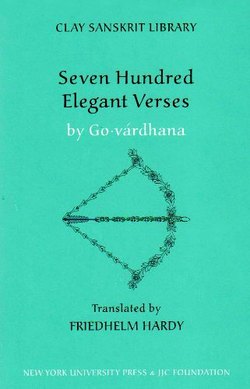Читать книгу Seven Hundred Elegant Verses - Govardhana - Страница 17
Оглавлениеas a most incongruous simile, grief resembling a parrot, is logically justified, as well as being embedded in wordplay: suka ⋮ soka. Moreover, both can be said to be growing bigger day by day. Yet the poet has a few more syllables left, so he can add Smara/visikha/tiksna/mukhah, in order to explain the nature of the grief: “with the arrows of Kama as its primary painful cause” (various other interpretations are possible). This is a slightly odd phrase, which makes us think back to the parrot. Indeed, we find that the parrot can break the cage because it has “a beak as sharp as Kama’s arrows.” This now cements the simile of parrot and grief, for the single phrase, analyzed differently, characterizes both the bird and the woman’s emotions. So what Go·vardhana does, here and in a large number of other verses, is to challenge the listener, by offering him ideas and mental images which only towards the close of a verse build up to a meaningful, logically coherent whole. It is precisely this element of tension, anticipation, expectation, struggle, and eventual surprise that a smooth-flowing translation will destroy.
Like a parrot its cage that is made of wooden twigs, growing bigger day by day, it tears apart the heart of my beloved—grief with the arrows of Kama as its primary painful cause ⋮ with its beak that is as sharp as Kama’s arrows.
A possible alternative rendering (e.g. “cutting to pieces” for “tearing apart”) has to be kept in mind, since the basis of the comparison is not yet revealed. What precisely grief does to the heart of the beloved remains in suspense. But ________
